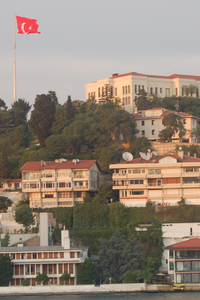Introduction

This course is a wide-ranging survey of world politics including an overview of the international system, problems of conflict and war, political geography, major forms of government, cultural and economic sources of politics and policy. Simple and extended simulations as well as case studies based on contemporary events are added to increase the applicability of the topics taught. As there is no prerequisite for the course, an introduction to relevant political concepts is prepended to the course to get the students thinking in terms of Political Science.
Required Text
There are two required texts for this course. Additionally, there are several additional readings that you
will need to locate and read for the appropriate times during course. As a part of this course, exposure to
political science sources, both vulgar and academic, will be provided.
-
Joshua S. Goldstein and Jon C. Pevehouse, International Relations, Brief 4th edn. (New York: Pearson-Longman, 2008).
[ISBN-13: 978-0-205-57527-5] -
Brett R. Gover, ed., The Rand McNally Atlas of International Politics. (New York: Houghton Mifflin, 2006).
[ISBN-13: 978-0-618-83713-7]
Required Activities
In addition to attending every class period, students are expected to deport themselves as undergraduate students.
This means that all readings, extensive though they are, are read and digested; questions about the materials are
formulated; and extensions to the topics to be covered are considered.
There are two scheduled examinations, weekly Foreign News briefs, multiple assignments and in-class activities,
and an extended simulation, complete with a debriefing assignment. In addition to these written (and non-written) activities,
you are expected to take active part in classroom discussions.
Personal Thoughts
There is a whole world out there. It is our job to get to know it, not just because those states are filled with human beings, but because
we can learn about ourselves and our country by observing how others interact with their government and how those governments interact with
each other.
There is a point, a state of mind, termed the Archimedean Point. This position is where we are best able to objectively view events
and analyze them without the influence of our socialization. This point allows us to examine ourselves in a way that helps us truly
understand who we are and where we fit in this world. This point is elusive, but well worth the effort in finding. It is this point
that I encourage you to find in this course. Do not look at this course as merely a chance to see how others live, but as a chance to
see how we can live better.
Some Books of Interest
As this is an introductory course, there is no way possible to cover all of the interesting aspects of the world. From my experience,
there are several books that deepen our understanding of the people and the events of this world. None of these books are required
reading; however, these books are interesting in various ways.
-
Pervez Musharraf, In the Line of Fire: A Memoir. (New York: Free Press, 2006).
[ISBN-13: 978-0-743-28344-1] -
Mohammad Reza Shah Pahlavi, Answer to History. (New York: Irwin Publishers, 1980).
[ISBN-13: 978-0-772-01296-8] -
Richard Nixon, 1999: Victory Without War. (New York: Simon & Schuster, 1988).
[ISBN-13: 978-0-671-62712-6] -
Richard Nixon, Seize the Moment: America's Challenge in a One-Superpower World. (New York: Simon & Schuster, 1992).
[ISBN-13: 978-0-671-74343-7] -
Ishmael Beah, A Long Way Gone: Memoirs of a Boy Soldier. (New York: Farrar, Straus, and Giroux, 2007).
[ISBN-13: 978-0-374-10523-5] -
Ole J. Forsberg, Terrorism and Nationalism- Theory, causes and causers. (Saarbrücken, Germany: VDM Verlag, 2007).
[ISBN-13: 978-3-836-41592-7] -
David Fromkin, A Peace to End All Peace: The Fall of the Ottoman Empire and the Creation of the Modern Middle East. (New York: Owl Books, 2001).
[ISBN-13: 978-0-805-06884-9] -
Stephen Kinzer, Crescent and Star: Turkey Between Two Worlds. (New York: Farrar, Straus, and Giroux, 2002).
[ISBN-13: 978-0-374-52866-9]
![Flag of Ruritania [=]](ruritania/flag15-rk.png) 19..2008
19..2008